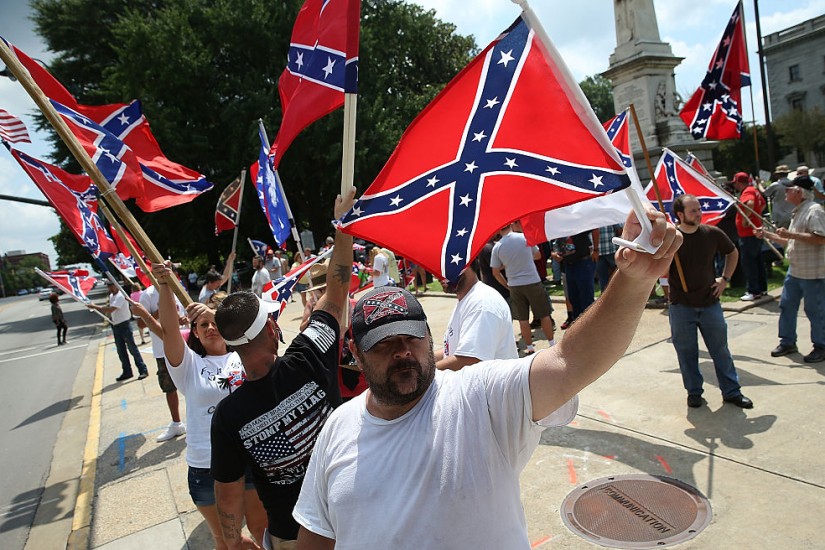On September 12, 1920, armed white men abducted a black prisoner from the Clarke County jail in Quitman, Mississippi. The captive, Will Echols, had been transferred from a neighboring county "for safekeeping" after the Mississippi Supreme Court stayed his execution. Convicted of murdering a white night watchman at a local lumber plant, Echols narrowly avoided the gallows when another black convict confessed to the crime. Less than forty-eight hours later, Echols's bullet-riddled corpse hung from a pole alongside a rural highway. Before pumping dozens of rounds into their victim, the mob reportedly shouted, "To Hell with the Supreme Court," and forced Echols to kiss a Confederate battle flag.
Although they are separated by nearly a century, Echols's killers are kindred spirits of Dylann Roof, the twenty-one-year-old mass murderer fond of posing with banners of various white supremacist regimes—particularly the Confederate States of America. Roof's June 2015 shooting spree at Charleston's Emanuel African Methodist Episcopal Church did not spark the race war he desired, but the tragedy did ignite renewed debate over the links between white supremacy, violence, and one of the most divisive symbols in modern American history—the Confederate battle flag. Indeed, the massacre gave new momentum to campaigns to remove the flag from government grounds and strike the image from state-sanctioned and state-issued items such as license plates. More surprising, those demands resulted in prompt action in South Carolina and several other states. The Charleston massacre brought together an unprecedented chorus of voices, from "Black Lives Matter" activists to Republican legislators, who demanded that we finally put the flag and its bloody legacy behind us. Less surprising, the campaign drew the ire of the apologists and defenders who maintain that the flag remains a symbol of heritage and not hate.
If the uncertain future of the battle flag divides these camps, the flag's defenders and detractors have demonstrated remarkable consensus on at least one aspect of the flag's history. From activists and celebrities who have joined the call for the flag's removal to neo-Confederates and those currying their political favor, commentators have consistently emphasized a mid-twentieth-century metamorphosis engineered by diehard segregationists, Klansmen, and neo-Nazis. These extremists, so the story goes, transformed a historic symbol of the Civil War into an emblem of racist defiance.
